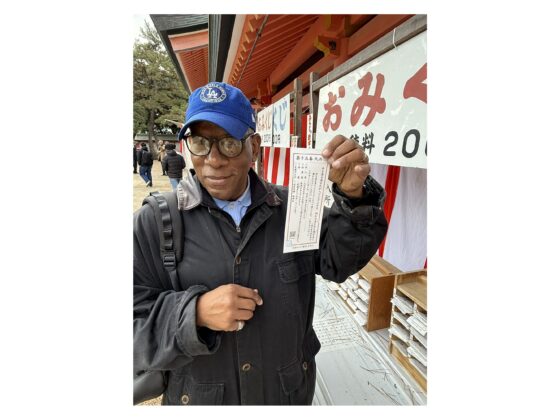Looking for your next good career-related read? See what Darden’s Alumni Career Services coaches are recommending as we dive in to 2022.
Range by David Epstein
Reviewed by Jen Coleman
When a Darden alum first told me about Range by David Epstein, I was immediately intrigued for two reasons. First, Darden is consistently a top-ranked school for General Management, and it is not uncommon for alumni clients to describe themselves as generalists or general managers and be unsure of exactly where they fit within tightly defined MBA career paths. Second, in my role, I see firsthand how the job market is geared toward hyper-specialization. The faster recruiters can pigeonhole you, the faster they can get paid. So, when I saw the subtitle of the book, “Why Generalists Triumph in a Specialized World,” I knew I had to read it. I hoped to glean some insights into how generalists can better market their extraordinary value.
Hiring managers take note: Range is jam-packed, almost exhaustingly so, with example after example, scientific study after study, showcasing the benefits of diversification — diversification of education, hobbies, careers and thought. The book did not change my thinking on approach to job search and the importance of conveying specific expertise, but it did validate some thoughts about the often-long road to a suitable, successful career. For years now, ACS has been running workshops based on the book Designing Your Life. Both books strongly emphasize the concept of experimentation when it comes to career path. It is never too late. There is no one chance to get it right. Keep trying things, with child-like enthusiasm. And don’t “decide who you should be before first figuring out who you are.”
Think Again by Adam Grant
Reviewed by Evan Inra
Adam Grant is an organizational psychologist at Wharton and accomplished author (and a great follow on social media if you don’t already). Therefore, I was excited to read his new book, Think Again, over the holidays. This book was seemingly written for this moment in time we are all experiencing together and applies to many facets of our professional and personal lives. During a period where so many seem to be stuck in their own echo chambers and unwilling to even entertain alternate viewpoints, Grant points out the value of approaching life like a scientist. As he puts it, “Thinking like a scientist involves more than just reacting with an open mind. It means being actively open-minded. It requires searching for reasons why we might be wrong — not for reasons why we must be right — and revising our views based on what we learn.”
Think Again has sections devoted to individual, interpersonal and collective rethinking. Grant sprinkles in interesting and relevant anecdotes from across history to emphasize his points, many of which caused me to pause and reflect. We see time and again how we learn more from people who challenge our thought processes rather than those who affirm our conclusions. Rethinking is a skill set and a mindset. He encourages us to doubt what we know, be curious about what we don’t know and update our views based on new data.
During an era in which debates consist of talking — or shouting — past others, we would be well served to hold up a mirror to our beliefs and assumptions. This is also encapsulated by the great Ted Lasso, who reminds us to “be curious, not judgmental.” What should we revisit? Just because something worked in the early 2000s, it should not be held as gospel for the rest of your life. Let’s resolve to let go of knowledge and opinions that are no longer serving us well and to anchor ourselves in flexibility and new learnings rather than consistency.
My Life in Full: Work, Family, and Our Future by Indra Nooyi
Reviewed by Stacey Milne
My first introduction to Indra Nooyi was at our Marriott general manager’s conference 10-plus years ago where, as CEO of PepsiCo, she was our keynote speaker. I was impressed by her strategic thinking, business leadership and candid personal stories as the first woman of color and immigrant to run a Fortune 50 company. I jumped at the chance to read her recent book, My Life in Full: Work, Family and Our Future, and was not disappointed.
As a Darden grad who still geeks out over case studies and CEO-level business strategies, I found the stories from her experience as a BCG consultant and business executive at Motorola and PepsiCo stimulating. I also enjoyed hearing her personal story from family life and education in India, to her courageous move to the U.S. to attend the Yale School of Management, to her journey climbing the corporate ladder as a mom, wife and daughter.
Nooyi not only writes an insightful memoir but looks to the future with a strong call to action and ideas for “elevating work and family to much more prominent consideration in business and the economy.” I recommend the book to anyone who enjoys learning from and being challenged by an exceptional strategic thinker and leader.
The Dip by Seth Godin
Reviewed by Gwen Mellor Romans
The Dip by Seth Godin is the book that I wish someone had given me at high school graduation, at college graduation, at law school graduation and when I graduated from Darden.
Godin proposes that “the Dip is the long slog between starting and mastery.” Dips are the secret to success, Godin asserts, because people who set out to make it through the slog, and go on to persevere, are those that go on to become the best in their markets. To persevere through dips, it is critical for us to quit those other projects or efforts that are distracting and unproductive: “The focus that leads us through the Dip…is rewarded by a marketplace in search of the best in the world.” He goes on to encourage the reader that “the market wants to see [us] persist. It demands a signal from [us] that [we’re] serious, powerful, accepted, and safe.”
One unspoken conclusion here: To become the best in a market requires that we pursue something that we’re truly passionate about. If we are required to be laser-focused, to quit any potentially distracting pursuits and to work through the Dip, we need to ensure that we are doing something that we genuinely love to do. Godin’s book has been especially motivating for me, as someone who began to pursue an encore career in my late 40s. It can be daunting to launch a consulting practice as a solo practitioner, and there have been a lot of disappointments. The Dip normalizes difficulty, and even celebrates it, so the book has been especially motivating for me personally.
The Practice of Groundedness by Brad Stulberg
Reviewed by Marty Speight
High-stakes careers often come with high-stakes problems like burnout, anxiety, restlessness, insomnia, chronic illness, etc. Brad Stulberg, a performance coach, recognized the tendency toward these symptoms and a nagging dissatisfaction in high performers. He labels the condition “heroic individualism” — a feeling that winning is never enough, the persistent need to do and be more. What’s the prescription for this malaise? Becoming “grounded” — seeking “a deep reservoir of integrity and fortitude or wholeness…out of which fulfillment emerges.” The author has distilled a large body of thinking — from ancient philosophers and mystics to present day psychologists, sociologists and researchers (he cites a daunting 68t “recommended readings”) — to offer a set of six principles that will lead to being more internally driven (vs. seeking external rewards) and behaving through “wise action” (vs. reactivity).
The six groundedness principles are: Acceptance, Presence, Patience, Vulnerability, Community and Movement (see summaries of five in Stulberg’s recent essay). The book suggests many discreet practices to pursue these principles, and illustrates action plans in a couple of case studies. Stulberg acknowledges that the real test is over-coming the “knowing-doing gap.” He says “first, you need to understand something and become convinced of its value. Then, you actually need to do it.” He offers interesting insights and persuasive arguments. Getting “grounded” means coming to understand your own personal values and definition of success, making a variety of intentional small behavioral adjustments, and being willing to practice consistently over a long period time. If you find yourself thoroughly exhausted, burned out and seriously dreading work, this book is a perceptive study of mindfulness techniques that could help you frame your challenges and desired outcomes.





